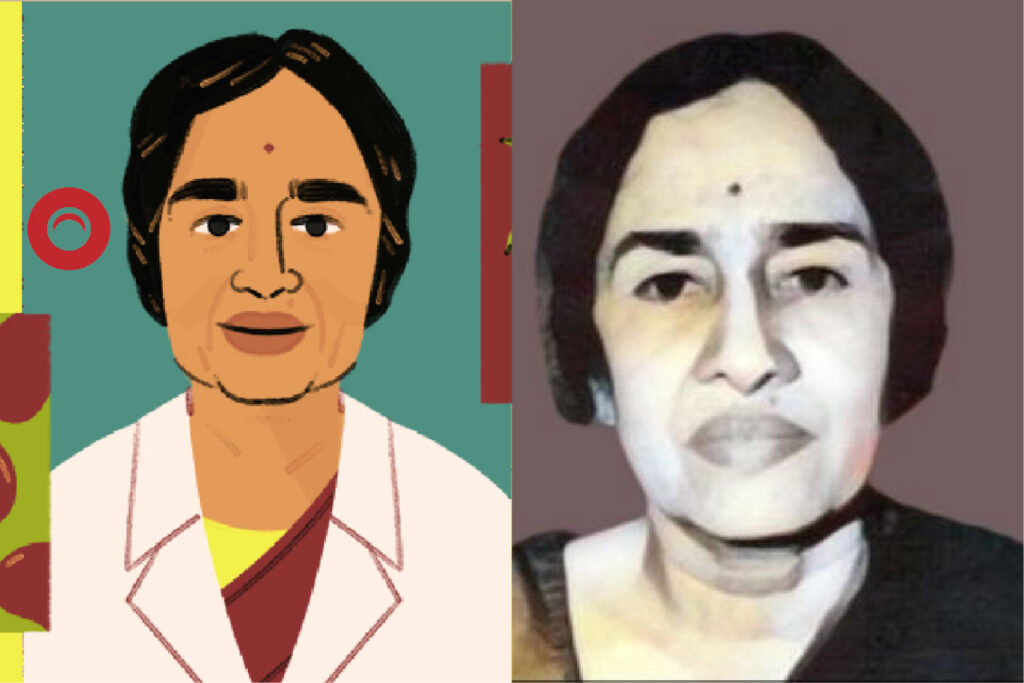Kamala Sohonie: Pioneering Indian Biochemist
Kamala Sohonie’s journey as the first Indian woman to receive a PhD in a scientific discipline is not just a tale of personal achievement but a story of stubborn perseverance and breakthroughs that paved the way for future generations of women in science. Her life and work remain an inspiration to many across the globe.
Early Life and Education
Born in June 18, 1911, Indore, India an era when women were seldom encouraged to pursue higher education, Kamala Sohonie broke all stereotypes to forge a path in the world of science. Her early fascination with chemistry and the support from her family were pivotal in shaping her academic pursuits.
Kamala Sohonie’s Kinder Years
During her kinder years, Kamala exhibited a strong curiosity about the natural world, which was nurtured by her intellectually supportive family. Her father, a respected advocate for education, and her mother’s encouragement to explore her interests, set the foundation for her groundbreaking career.
Breaking Barriers in Academia
Kamala faced significant obstacles during her academic career. Despite initial rejections from prestigious institutions due to her gender, she persisted, eventually gaining admission to the Indian Institute of Science (IISc) in Bangalore, where her research would make waves in the field of biochemistry.
Kamala Sohonie’s Alter in Biochemistry

Kamala Sohonie’s alter in the field of biochemistry came when she focused her research on proteins in legumes, which was crucial for understanding nutritional values in Indian diets. Her groundbreaking work laid the groundwork for future nutritional biochemistry research in India.
Family Influence and Legacy
Kamala Sohonie’s family played a crucial role in her journey. The support and inspiration from her family members, who valued education and social reform, deeply influenced her dedication and success.
Kamala Sohonie’s Family: A Foundation of Strength
Her family’s emphasis on education not only propelled Kamala into her research but also fostered a home environment where academic and professional achievements were celebrated. This familial support was crucial in her success at a time when women faced immense societal barriers.
Kamala Sohonie’s Contributions to Science in Hindi

Kamala Sohonie’s achievements have been documented and celebrated in multiple languages, including Hindi, making her story accessible and inspiring to a diverse audience across India. Her contributions to science have been a beacon of inspiration for young women in India, encouraging them to pursue careers in STEM fields.
Promoting Science Education Among Women
Kamala Sohonie was not only a pioneering scientist but also a fervent advocate for women’s education in India. Her career served as a beacon, encouraging more women to enter the sciences, a field that had been predominantly male-dominated.
Inspiring Women in Science
Throughout her career and after her retirement, Kamala actively promoted science education among young women, often speaking at colleges and universities. She believed that empowering women through education would lead to broader social improvements and was particularly vocal about the need for women to have equal opportunities in scientific research.
Read Also: Remembering Raoul A. Cortez: A Legacy Beyond Words
Her efforts went beyond mere advocacy; she worked to establish scholarships and programs specifically designed to help women pursue scientific education. These initiatives helped to slowly change the academic landscape, making it more inclusive and giving rise to a new generation of women scientists who would follow in her footsteps.
Kamala Sohonie’s enduring impact on science education for women in India highlights her role not only as a scientist but as a trailblazer for gender equality in education and professional fields. This added dimension to her legacy makes her story even more compelling and significant in the history of science and women’s rights.
Conclusion
Kamala Sohonie’s life is a testament to the power of resilience and determination in the face of adversity. Her legacy continues to inspire a new generation of scientists around the world, proving that with passion and perseverance, barriers can be broken and new paths forged.
(FAQs)
What were Kamala Sohonie’s major contributions to biochemistry?
Kamala Sohonie’s research on the effects of vitamins and enzymes in plant-based diets led to significant advancements in understanding food science and nutrition, particularly in the context of Indian dietary habits.
How did Kamala Sohonie influence future generations?
Kamala Sohonie not only paved the way for women in science within India but also influenced global perspectives on women’s capabilities in STEM fields. Her legacy continues to empower women to pursue their interests in science and technology.
What challenges did Kamala Sohonie face in her career?
Kamala Sohonie faced gender-based discrimination in her career, particularly when initially denied entry into certain scientific institutions. Her perseverance in overcoming these barriers has made her a symbol of resistance against gender discrimination in academia.

